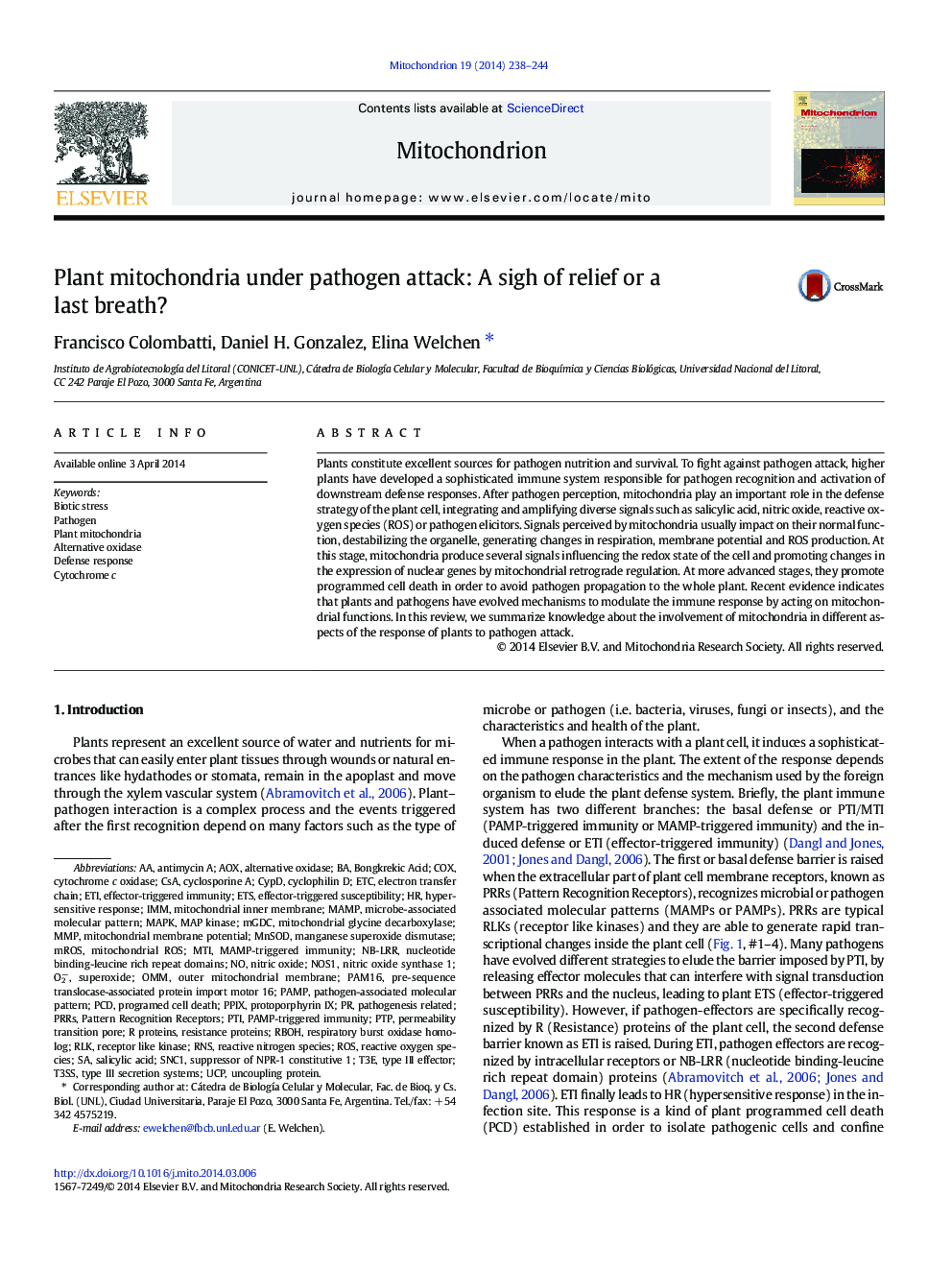| Article ID | Journal | Published Year | Pages | File Type |
|---|---|---|---|---|
| 2068720 | Mitochondrion | 2014 | 7 Pages |
•Plant mitochondria are involved in many aspects of plant responses to pathogens.•Signals derived from pathogen attack modify mitochondrial function.•Bacterial effectors may suppress immunity by disrupting mitochondrial functions.•Some mitochondrial proteins would act as negative regulators of plant immunity.•Mitochondria produce signals that impact on gene expression in the nucleus.•Mitochondria are important actors of plant cell death during pathogen attack.
Plants constitute excellent sources for pathogen nutrition and survival. To fight against pathogen attack, higher plants have developed a sophisticated immune system responsible for pathogen recognition and activation of downstream defense responses. After pathogen perception, mitochondria play an important role in the defense strategy of the plant cell, integrating and amplifying diverse signals such as salicylic acid, nitric oxide, reactive oxygen species (ROS) or pathogen elicitors. Signals perceived by mitochondria usually impact on their normal function, destabilizing the organelle, generating changes in respiration, membrane potential and ROS production. At this stage, mitochondria produce several signals influencing the redox state of the cell and promoting changes in the expression of nuclear genes by mitochondrial retrograde regulation. At more advanced stages, they promote programmed cell death in order to avoid pathogen propagation to the whole plant. Recent evidence indicates that plants and pathogens have evolved mechanisms to modulate the immune response by acting on mitochondrial functions. In this review, we summarize knowledge about the involvement of mitochondria in different aspects of the response of plants to pathogen attack.
